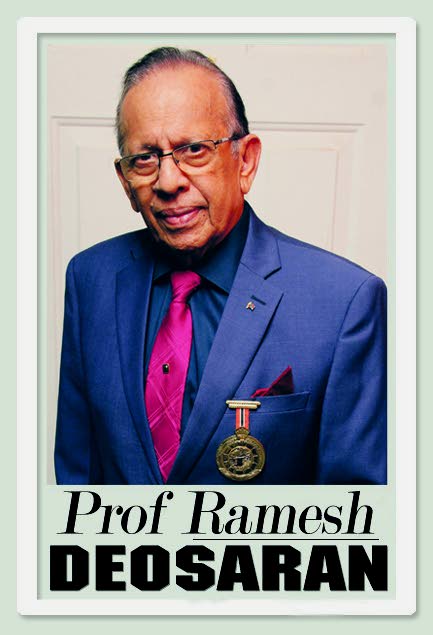Confession or culture?
Written by Newsday on February 16, 2025

“Wilson going an’ dead!” screamed the woman sitting behind me in the cinema. This was not her first very, very loud exclamation during the film, but it was so panic-stricken for a second I forgot who Wilson was and looked around to see if anyone was coming to help.
This was before the fall of the big cinemas of Port of Spain and the arrival of MovieTowne. MovieTowne lured patrons with its clean seats, lessons in audience etiquette and rat-free comfort. And they turned the volume down on patron participation.
The film was 2000’s Cast Away – nearly two and a half hours of Tom Hanks and a volleyball ball. That Wilson. The moment of “Wilson going an’ dead” remains my favourite cinema experience to this day.
I was thinking about confessions, confessing and confessional spaces when I drifted back to the lady I have thought of as Mrs Wilson for a quarter of a century. There’s no direct connection. Mrs Wilson was overwrought, I was there, I know she had no hand in Wilson’s death. So she was not confessing, she was just wailing.
We are a loud country. For all the dark and shady doings we do, for all the secrets we keep or are supposed to keep, we are given to shouting. We like a good public declaration. I’m under no illusion that this is news to anyone.
The confessional fete, on the other hand, is an art still being perfected. From where has it come and who has advised some of our biggest headline acts to do it? And how can we make it stop?
In the last two years I have been to fetes at which I have been treated to the details of the mistreatment of performers and lack of appreciation by the powers that be. I have heard about the aches, pains and assorted maladies of singers and how, in spite of it all, they have soldiered on to give us a good show.
They pay no heed to these burdens because we, the feters, are all that matter.
“I do it for the fans,” said every performer since, as per David Rudder, “the first chantuelle leave the band.” Probably since some ancient ancestor started wandering from settlement to settlement telling stories, all through history up to this moment.
Confessing in therapy is a pivotal moment. It is the surrendering of something that was so burdensome perhaps it was affecting the rest of your life. Perhaps it was a weight you could not share with anyone and so it became a thing that felt like physical agony.
The benefits of confessing in the world of mental health are not quite like what you might expect of confession in a religious setting. No one can grant you absolution.
With your clinician of choice, the process helps you to do, first, the obvious: give voice to the unsaid. That, in and of itself, is plenty. Secrets are far too often the enemy of a good night’s sleep. Researchers have found every benefit from improving your self-esteem to being able to move on with your life.
I’m particularly interested in a strand that involves sort of seeing yourself in the rear view mirror. It has to do with you, the person now doing the confessing, being different from the one who had a misdeed to confess.
The work on confession in the psych world is considerable and deep. Beyond you and me and our angst, consider people accused of crimes. That’s a whole other world, and that world is vast.
Saying the words and acknowledging what you did is hard work. But it could mean learning to accept yourself – imperfect as you are.
Now, the thing with fete confessions is, it seems to come easy. Too easy. It’s not just an embrace of a problematic side, it’s a great fuzzy bear hug. I return to our musicians and the space of music performance because in so many ways I think they are who we are, written in all caps. Many of us whinge, carp, moan and tell our problems to people in the line at the pharmacy.
But do we ever get near to the source of our main distress? No part of me understands why a much-admired entertainer would describe their problems to the assembled massive in a way that begs you to feel sorry for them.
It is cringey. And small-making. Also, spare a thought for people with real problems who need real spaces to talk.
Remember to talk to your doctor or therapist if you want to know more about what you read here. In many cases, there’s no single solution or diagnosis to a mental health concern. Many people suffer from more than one condition.
The post Confession or culture? appeared first on Trinidad and Tobago Newsday.




